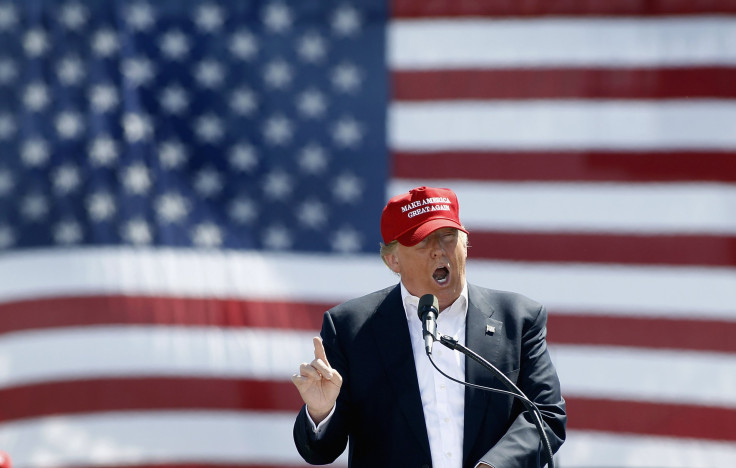March 22 Primaries: Polls Support Donald Trump Amid Protester Controversy, John Kasich Challenge

Republican front-runner Donald Trump defended his supporters' actions at rallies that turned violent, blaming protesters for sparking trouble. Trump addressed the controversy during an interview on ABC's "This Week," ahead of primary contests in Arizona and Utah Tuesday.
“We don’t condone violence, and we have very little violence, very very little violence at the rallies," Trump said on “This Week,” adding, “As I said in Phoenix we had 21,000 people, we didn’t even have anybody stand up and try and disrupt. You know they’re disrupters, and they’re really stopping our First Amendment rights if you think about it.”
Both protesters and journalists have been forcibly removed from rallies in recent weeks, with supporters of the business mogul punching several protesters, some of whom were African-Americans.
When pressed on whether the protesters and not the Trump supporters were to blame, the Republican front-runner said, “These are professional agitators. And I think that somebody should say that when a road is blocked going into an event so that people have to wait sometimes hours to get in — I think that’s very fair. And they should be blamed there too.”
Despite controversy over the violence at rallies, Trump maintained a lead among remaining GOP hopefuls, holding 35.7 percent of support from likely Republican voters nationwide, according to RealClearPolitics, which takes the average of recent polling data. Texas Sen. Ted Cruz steadily narrowed the gap, up more than six percentage points from February, polling at 26.7 percent support.
Republican voters are set to take to the polls Tuesday in first-round voting events in Arizona and Utah, which are likely to see two very different outcomes. Trump holds a 13-point lead in Arizona with 34 percent of support, according to RealClearPolitics, followed by Cruz with 21 percent and Ohio Gov. John Kasich with 12.5 percent. Cruz was slated to take delegates in a Utah caucus, however, holding a 24-point lead with 53 percent support, according to RealClearPolitics, followed by Kasich at 29 percent and Trump at just 11 percent.
WATCH: @realDonaldTrump on @ThisWeekABC: "At what point do people blame the protesters?" https://t.co/7YBe72r71A https://t.co/vO8510iKfP
— This Week (@ThisWeekABC) March 20, 2016
As Republican candidates have dropped out in the past several weeks, Kasich has looked to present himself as an establishment pick for the party. The levelheaded Ohio governor has repeatedly focused on his record both as governor and in Congress, balancing budgets and creating economic growth. Kasich has aimed to portray himself as a president who could work across party lines, and he said the Senate should carefully consider President Barack Obama’s Supreme Court nominee Merrick Garland rather than dismissing him on purely partisan grounds.
"They probably ought to all sit down and meet with the guy," Kasich said in a taped interview for CBS’s “Face the Nation” Sunday, adding, "My feeling is, at the end of the day, whoever gets elected president should be in a position to be able to pick you know who they want and the American people will either decide by voting for a Republican or Democrat what the makeup of the court is."
While Kasich does not have enough delegates to win through primary voting events alone and would need to secure the nomination through a brokered convention, he said he would not stop campaigning. “I’m going to compete across the country and tell people who I am and let the chips fall where they may,” Kasich said on “Meet the Press” Sunday.
© Copyright IBTimes 2025. All rights reserved.






















